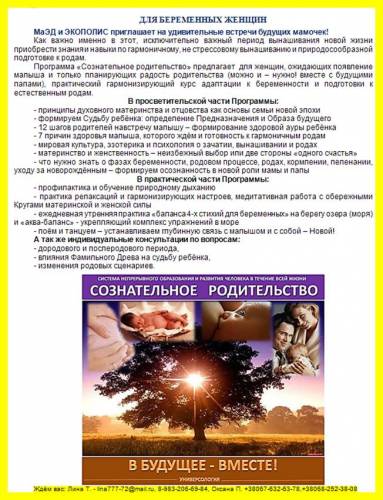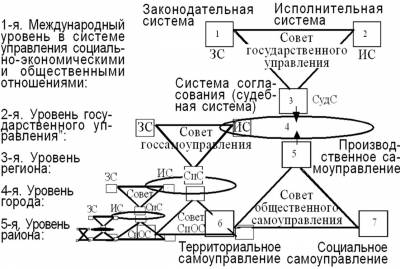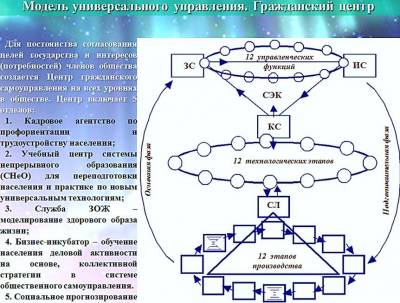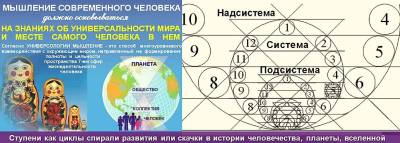В поселке Куйбышево (пригород Оренбурга) в живописном месте была возведена Пирамида, как символ будущего Гражданского Центра. В настоящее время рядом с Пирамидой ведется строительство здания под Центр. В Пирамиде проводятся различные мероприятия: мистерии, праздники, субботники. Новый Лайя-Центр оказывает гармонизирующее влияние на пространство города и его жителей, совместные мероприятия объединяют всех вокруг идеи строительства Гражданского Общества. Этот зарождающийся Гражданский центр является жемчужиной в ожерелье эволюционно направленных коллективов, служащих развитию всего Урала.
По вопросам сотрудничества:
Тамара ,+7 922 5367735, tamaramaed@yandex.ru
Людмила, +7 922 6259402, okludmila@yandex.ru
Юлия, +7 922 8296994, julia_maed@mail.ru
Приезжайте, мы вас ждём-  -и вас ждёт встреча с прекрасным Будущим вашей семьи!
-и вас ждёт встреча с прекрасным Будущим вашей семьи!
The concept of the project
The national originality of the region, its natural resources, moral and spiritual accumulation on the working place of every person, region, state and international community.
The chapters of the project
The 5 main directions of formation of the activity complex:
1st direction: the separate firms restructurisation into the corporate algorithm on the basis of the collective strategy and universal management model (scheme 1). The united centre management creation of the production, delivery, planning-marketing, technological and information basis of the corporation.
2nd direction: the common system of self-management creation:
a) Local (territorial);
b) Production – the inner market formation between the branches of the companies and giving workers opportunity in the production management participation (as shareholders).
c) Educational – the scientific-research basis integration and the educational system opportunities, the specialists` attraction to the company workers` re-train (with the opportunity of the National Academies for MIPaCP special courses attending) and students` retraining- to the work in the corporation.
The wide interlocal and international links building with the public, parliamentary, educational, tourists organizations for the exchange of information, tourism and health improvement.
Taking part in the parliamentary work and the europarlament members` attraction to the image "Ecopolis” complex formation as the international health-improvement, tourism, spiritual development centre. Europe and world "Green party” members` attraction.
3rd direction: the healthy life style education and systematic integrated (multilevel) prevention, including the early-stage illness diagnostic removement of the reasons which cause the illness, stress, crisis.
4th direction: phased formation of the comprehensive developed, cultural, creative and initiative including the collective. The success model. Training.
5th direction: INTECO Continuous systematic education during all life(for all ages)- integral-cardinal education. The creation of the international science school centre of the systematic philosophy of life, which there are 3 levels of education for its own specialists` education and those interested in working all over the world.
1) The systematic philosophy of the life school;
2) The systemology and cardinal psychodiagnostics college;
3) The university for management and psychosystemology
7th direction: the social and cultural activity. The historical heritage region research as the contribution to the world culture and development humanity experience.
The introduction project technology
The development of the Academy in the branch of the management, integrated processes, inter-systematic forecasting, the universal regularity theory and psychosystemology is based on the formation of the economic mechanism of the enterprises, organizations, international community. The developments of the Academy allows:
- to open the workers` potential, to realise the recourses of the creative work, creative and creativeness;
- to remove the social tension, passive, independence;
- to represent the new evolutional, special installation, directed to the cooperation and the collective work;
- to revive the high humanity, culture and morals.
The management of the project
The management project system and its realisation is based on 3 models:
1.the hierarchy of goals;
2.the phased formation of the complex production cycle;
3.the matrix prognostication of the current and future stage of the individual.
The continuity: this project implemented on the basis of the Japan collective enterprise strategy, the Western corporative management strategy, the local self-management experience of the European countries` people and long-term activity of the Academy in Russia, Ukraine, Byelorussia and other CIS countries.
1) creation of the detailed and interdependent managerial scheme on the production circle stages;
2) detalization of the subdivision enterprise functions;
3) on the basis of the universal scheme and attraction model- the deepest and more acknowledged worker`s participation in the enterprise, circumstantiation of every co-worker of the main and intermediate goals, including the private ones;
4) every co-worker contribution circumstantiation into the common activity cycle;
5) detalization elaboration of the official obligations, spheres of responsibilities;
6) creation of the conditions for the former production process restructuring into the more detailed and stage-by-stage the quality production algorithm.
7) the goals and programs enterprise independence with the macroeconomic and domestic mechanism of the country.
Social efficiency (the social effectiveness is reached at the expanse of):
- working time decreasing due to the illness;
- reducing of the social security fund and free funds of this fund for the preventive and health-improvement measures carrying-out;
- increasing of the responsibilities, self-actualisation, initiative and collective members` creative potential realization;
- the healthy psychological climate creation in the collective. The phased project introduction:
1ST STAGE:
1) the clarification of the interdependent managerial link system and levels of subdivisions: international community- country- region and the region-corporation-co-worker as the over system-system-sub system (scheme 2).
2) the hierarchy goals creation: the development program description: government-region-country-city- region-enterprise-the worker and the participation opportunity establishing in these enterprise programs(or its separate links).
b) caused-consequence system where:
- the cause – managed subject;
- the consequence – is managed subject;
b) 7 structure enterprise levels on which the productive cycle is forming.
(The aim of the hierarchy goal creation to combine the priorities and interconnect the different level interests: from the international goals to the actual co-worker with his/her own interests.)
The certain number enterprise determining which service the 5th chosen enterprise activities. 3. The collective strategy building as the production self-management system, structuring 2 levels of management and self-control. 1. Administration of the enterprise. 2. The board consists of production representatives` subdivisions enterprise.
The production cycle coordination "Ecopolis” with the hierarchy of goals and public management.
The production self-management goal is to create the collective`s interests in self-control of quality of the service, intershop delivery of complex equipment, service, products. The main goal of this is the resetting of the subdivisions on the self-financing (and other effective economic forms).
Besides that, it is necessary:
1) to create the service market inside the enterprise (as the supply and delivery auction from the side of the subdivisions in the services).
2) for the corporation or enterprise stability create all possibilities to the divisions for working in the additional time fulfilling the outside orders and on the self-financing (after the fixed and means fastening at the subdivisions.)
2ND STAGE:
The scheme of the corporation is building on the basis of the universal predictability theory. The scheme allows the 5th interconnected directions activity within the board of every enterprise, incoming to the corporation and also, in the common, the 5th independent companies:
1) The clinic or the consultation centre – the systematic prevention, the early-stagy illness diagnostic.
2) The psychologist centre – the success model, psychocorrection, training;
3) The educational centre, school – continuous multilevel (including Academical) education; the talented young people education, faced ability and motivation sphere forming, the systematic and complex educational programs.
4) The social-economic administration the consultation on the basis of the production and social processes universality, creation of the spiritual purpose oriented enterprises, companies, introduction of the collective strategy health-improving measures algorithm and so on.
5) The social self-management centre with the exit to all levels of the parliamentary work and regional representatives of the local administration;
6) Varied-interests conflict and the social crisis basis are overcoming. For these such measures are improving as: cultural production relationship level, types of ownership, economic types in the subdivisions and their structure of interlinks (the production scheme), the type of the taking managerial decisions algorithm and quality of their influence on the functioning of the industry.
7) The character of the universal predictability displaying is investigating in the corporation economic system;
8) The complexion of the social-economical infrastructure forming is establishing. Educational-health-improving system model is creating, as on the scheme № 1.
THE 3-rd STAGE
1) Management system developing. Management system is improving on the basis of 3 models: №1 – purposeful management; №2 – phased formation of production and corporate cycle; №3 – matrix prognostication of current and future states of an economical system, its collective and members of the collective.
2) Analysis of a managed subject as the structure of control sphere.
3) Planning of production cycle stages as the adopted algorithm of combined using of 3 models in hierarchical co-subordination, in marketing and management.
THE 4-th STAGE ( Technological preparation).
1. Determination of employee’s functions and their control; conditions stimulating initiative and creativity of personnel; determination of property type (rent, joint stock, redeemed etc..) for self-financing subdivisions; set of mutual services, which are supplied by subdivisions and their estimate regarding market value.
2. Education, occupational retraining in accordance with introduction of innovations (Special courses developed in the Academy) – 1) psychosystemology of purposeful and phased formation of the management system, 2) using of models of the universal production algorithm, 3) success model, 3) psychology of collective strategy, 4) production self-government, 5) health way of collective’s life, 6) effective decision-making models, 7) technique of the mental psychosystemic modelling (MPM) etc.).
THE 5-th STAGE
1. Crating of team which develops, adopts and introduce innovations in an enterprise;
2. Phased introduction of innovations, operational production, depending on the recommendations and wishes of managerial staff.
THE 6-TH STAGE
1) Quality control, operational analysis of the production state and determination of innovation effectiveness on the basis of financial state and economical aggregates of company;
2) Control and early diagnostics of psychophisiological, emotional and mental employees’ abilities. Exercises and special trainings for formation of collective strategy;
3) Installation of computer programme for matrix prognostication of current and future state of enterprises and organisations, diagnostics of the employees’ condition. (including employment status).
4) Control of social infrastructure development, involvement of employees in company activities of social services supply (including an additional activity to the basic production task).
THE 7-th STAGE
Conflict settlement of the inconsistency between subdivisions under new economical conditions. Improvement, ordering и reduction of all stages in production cycle, intersystemic prognostication.
THE 8-th STAGE
Universal and combined approach to the enterprise management under conditions of self-functioning of its subdivisions in the service market (inside, as well as outside). Company control under new conditions.
THE 9-th STAGE
Flexible and well-timed reaction to the conservatism; scientific organization of activities of subdivisions and production enhancement and advanced reaction to ups and downs of the market, to demand etc.
THE 10-th STAGE
Permanent control of interrelationships between subdivisions in accordance with the market conditions and society programs, personnel retraining, correction of activity.
THE 11-th STAGE
Widening of Know-How in other enterprises, in branches, as well as in economic;
Correction of well-timed satisfaction of social demands and the integration grade in infrastructure of district area, city, region.
THE 12-th STAGE
Innovation results analysis, determination of improvement innovating ways, correction of activity on the basis of analysis.
2. Increment in profit is supposed to be not less than 10 %.
3. Increasing the efficiency of production on the basis of the collective strategy leads to increase in employees’ initiative, creativity and reaching of their maximum potentials.
4. The created production collectives adapt themselves quickly to innovations including market changes.
5. Labour and social activities, responsibility, self-discipline of people involved in production process are constantly increasing.
6. The levels and stages of organisational mechanism for formation of the enterprise management, that gives maximal effectiveness, have been determined.
7. Systems of professional self-perfection, collective strategy and co-cooperation power are created.
8. International connections in both production and the scientific-research sphere are being established.
RECOMMENDED LITERATURE
1. Soul’s voice, №5. under the editorship of V. Polyakov. 1999. – 162с.
2. V.Polyakov Astrosynthesis and functioning of the unified micro- and macrocosmos. 1995. – 208 с.
3. V.Polyakov Gnoseological relativism as the method of scientific sophistication. 1998. – 64с.
4. V.Polyakov Astrocosmology and esoteric astrology. 1998. – 208с.
5. V.Polyakov Astrosophy and Cosmology. 1998. – 208с.
6. V.Polyakov Astroesoteric healing and cardinal psychotherapy. 1996. – 256с.
7. V.Polyakov Gnoseology of relativism and theory of consciousness relativity. 1999. – 108с.
8. V.Polyakov Gnoseology of relativism as a new scientific paradigma / Consciousness ecology. Criteries of successful development in tolerant society of 21 century. //Materials of the conference in Norilsk dated 3-4 of April 1999.
9. V.Polyakov, I. Derepevko Modelling of managament and prognostication algorithm. 2000. – 168с.
10. V.Polyakov The unified field theory of Cosmos. 1998. – С.
11. V.Polyakov Zombiration and Robotisation. Astrology and diagnostics of energy systems psychoprogramming. 1995. – 64 с.
12. V.Polyakov Cardinal psychodiagnostics - psychological research method. 1998. – 112с.
13. V.Polyakov Cardinal psychodiagnostics. Patent of the Russian Federation "Psychodiagnostics of person’s condition”. 1999. – 48с.
14. V.Polyakov Cosmosophy and relativity of consciousness theory. 2000. – 192с.
15. Criteria of truth. The universal development law. 1998. – 56 с.
16. V.Polyakov, V. Baranovskaya Models of management and prognostication algorithm. 2001. – 176с.
17. V.Polyakov Modelling of psychological relationships. Formation of creative personality in acmeology. 2000. – 124с.
18. V.Polyakov Phased formation of consciousness by creation method in acmeology. 1999. – 168с.
19. V.Polyakov Modelling of a healthy way of life. 2000. – 138с.
20. V.Polyakov Modelling of social self-government system. 2000. – 138с.
21. V.Polyakov Socio-economical renovation in country on the basis of management theory. // Works of the first international congress "Demographic problems in Byelorussia”, 17-20 марта 1999г.
22. V.Polyakov Psychology of personality’s development in systemic relations. 1999. – 128с.
23. V.Polyakov Relativity of consciousness theory. 1996. – 160с.
24. V.Polyakov Socio-economical process management theory. 1998. – 48с.
25. V.Polyakov Evolution of consciousness, 1996. – 64с.
26. V.Polyakov I am the way, truth and life. Evolution of cosmic consciousness. 1996. – 128с.
27. V.Polyakov Psychoanalysis express-method of personality’s development programme. 1996. – 64с.
28. V.Polyakov, N. Yakovleva, I. Shahlevitch Management theory of multifactorial non-linear process by the psychosystemic analysis. 1999. – 104с.
29. Etc.


